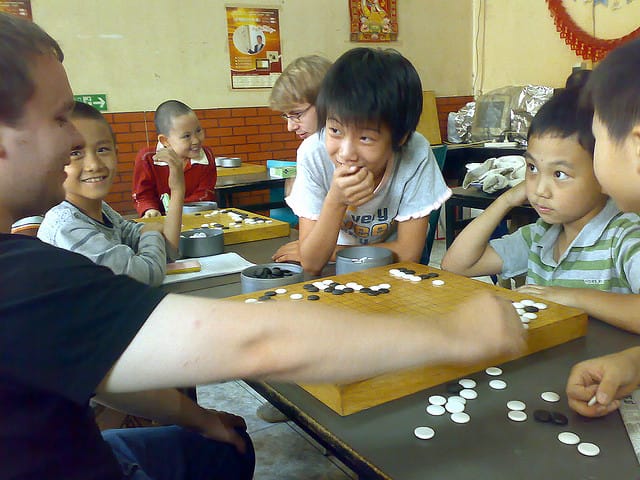
Games are famously good at teaching – they encourage and reward skill acquisition, they use every trick in the operant conditioning book, and they are basically great at teaching the player both details about their fictional worlds (no matter how inane) and how to play them. Folks in the educational and games for social change spaces have been trying to tap into this power for some time now, with mixed results.
Maybe they just need to get a better handle on empathy
– – –
Empathy is both as a desired outcome and a crucial part of the teaching. A piece published in KQED’s blog today looks at the relationship between learning and empathy, and the ways in which schools are beginning to harness this in classrooms.
“Science is starting to show that there is a very strong integration between social and emotional skills and learning,” said Vicki Zakrzewski, education director of the Greater Good Science Center at U.C. Berkeley, which studies the psychology, sociology and neuroscience of well-being during a recent Forum radio show. “Some scientists believe that cognitive achievement is 50 percent of the equation and social and emotional skills are the other 50 percent.”
Some school districts are taking that idea seriously and integrating the research into teaching practices. Oakland Unified School District, for example, is piloting a program called Roots of Empathy in 20 schools across the district. The program teaches students how to be empathetic by bringing a baby and the baby’s parent into K-12 classrooms. The students are asked to think about the baby’s experience as it explores the classroom, while a trained facilitator helps them name the baby’s feelings and emotions. Focusing on the baby and its vulnerability allows students to practice empathy, making it easier to identify their own emotions in the future. As they become more self-aware they’re better able to develop respectful and caring relationships.
The question is, can games teach those same skills? There’s at least some evidence that says they certainly can.
[A study conduced at UC Berkeley], used functional magnetic resonance imaging to show that different brain regions are active when individuals play a game against other people and when they play against themselves.
“When players compete against each other in a game, they try to make a mental model of the other person’s intentions, what they’re going to do and how they’re going to play, so they can play strategically against them,” explains one of the study’s authors Kyle Mathewson, who worked alongside lead author Lusha Zhu. This “mental model” of other people’s thoughts and feelings, also known as theory of mind, is crucial for the development of empathy, perspective-taking, and social reciprocity—all the skills that allow us to get along productively with others.
Those are admittedly also the skills that allow us to find competitors’ weak points and exploit them, but at least the groundwork is there.




